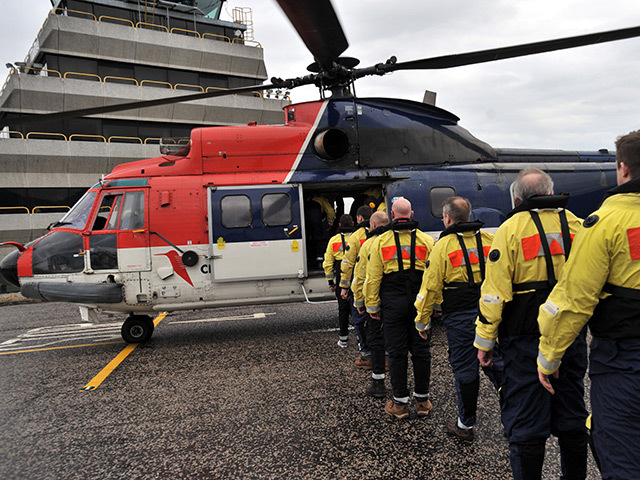
Almost 52,000 offshore workers have been trained to use a mandatory new emergency breathing system (EBS) as new rules on their use come into for today, the industry safety body has revealed.
Step Change in Safety said that every helicopter flight which supports the UK oil and gas industry will have a sufficient number passengers trained in the use of the new EBS which means there will be no need for seating restrictions on North Sea helicopters.
The system, designed to save lives after helicopter accidents in the North Sea, was approved by the UK Civil Aviation Authority (CAA) just five weeks ago.
The CAA set strict deadlines for introducing the enhanced technology offshore.
As of today, no passengers may sit on the inside seats of a helicopter without the Category A EBS. As of January 1 next year no passengers may fly in a helicopter without a Category A EBS.
Les Linklater, Team Leader for Step Change in Safety, said: “The introduction of the new breathing system is another step forward for offshore safety and comes after considerable amount of hard work and dedication from a number of people in the industry.
“It is a clear example of what can be done when our industry works together to improve safety.
“The new breathing system is a small part of the aviation safety picture. The safety of the workforce is our main priority and we must strive to continue this level of collaboration and dedication with everything we do.”
Rob Bishton, Head of Flight Operations at the CAA, said: “The safety of those who rely on offshore helicopter flights is our absolute priority.
“The introduction of the new breathing system is a significant milestone in the on-going work to further improve the safety of offshore flying.”
Recommended for you

